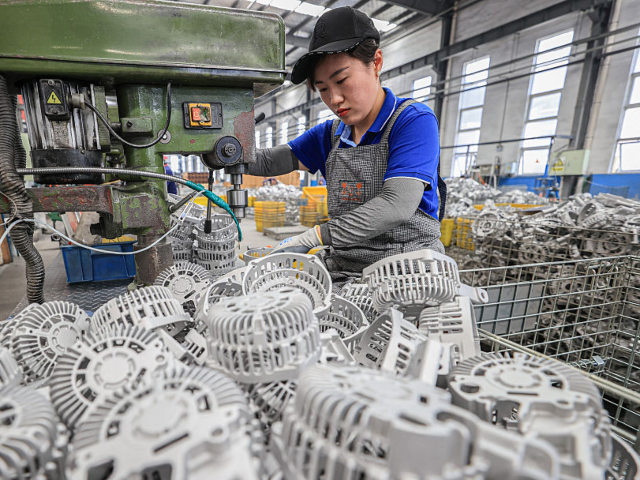Protests Erupt Across China as Factories, Schools, and Construction Sites Struggle to Pay Workers

A fresh wave of protests has reportedly broken out in cities across China, as angry workers demand their unpaid wages, and residents rebel against a myriad of new taxes and fees imposed by cash-strapped municipal governments.
Worker complaints about unpaid wages boiled over into street protests of unusual size and persistence in April, as President Donald Trump’s tariffs bit into the already shaky Chinese economy. Some demonstrators complained they had unpaid back wages and benefits stretching back into 2023, when it became clear that China’s post-pandemic recovery would be far less robust than Beijing had predicted.
Demonstrators also complained that the Chinese government has been lying about the state of the economy for years, so Trump’s tariffs hit businesses much harder than anticipated. Many companies had already gone deep into debt borrowing money to make payroll, so the reduced income from tariffs was even more devastating for their debt-encrusted balance sheets.
The new round of protests stretches all across China, and includes teachers and construction workers in addition to the long-suffering workers in China’s factories.
Radio Free Asia (RFA) reported on Wednesday that complaints about rising municipal fees have joined demands for back wages at the demonstrations:
In an example of measures by local governments to raise funds, the village committee of Pingtang in Gushan Town, in the eastern province of Zhejiang, issued a notice stating that “sanitation management fees” and “parking fees” would be collected from all residents from May 10.
Those failing to pay on time would be subjected to additional fees and vehicles being clamped, starting from June 1. Speaking to Radio Free Asia, some locals and rights activists called the move a “blatant extortion” and “illegal.” The local government said it was investigating the matter.
…
“High local debt and tightening central policies have seriously affected grassroots fiscal operations. The most direct victims are front-line workers and contract workers,” Zhang, a retired teacher from Guizhou University in Guizhou province’s Guiyang city, told RFA. He wanted to be identified by a single name for security reasons.
Chinese municipal governments obtain much of their revenue from fees on property sales, so it has long been feared the collapse of the Chinese real estate market would create a major financial crisis in the fast-growing cities.
That crisis seems to have arrived, and now swarms of unpaid government employees are marching alongside garment-industry workers to demand their wages.
“In the past, it was migrant workers and laborers who demanded wages, but now it is teachers, doctors, and sanitation workers. This shows that China’s ‘stable structure’ is beginning to unravel,” observed Zhang, the retired teacher from Guizhou University quoted by RFA above. Some teachers say they have not been paid in over six months, and their year-end bonuses appear to have been permanently canceled.
As usual, Chinese state media is attempting to downplay the protests, but dissidents and citizen journalists like the famed “Mr. Li Is Not Your Teacher” are posting photos and videos on social media.
In the post above, “Mr. Li Is Not Your Teacher” described a worker protest that shut down a factory in Zhejiang. Bloggers who attempted to cover the protest were bullied, threatened, and doxxed by local officials.
Other forbidden videos show demonstrators pitching camp in front of company offices, banks, and the homes of business executives, sleeping on floors and setting up woks to cook their meals:
RFA quoted Chinese officials who said the tariff reduction China negotiated with President Trump this month should revive revenue streams and make it possible for companies to catch up on their unpaid wages.
Asia News explained last week that China’s garment industry relies heavily upon “subcontractors,” small local operations which have no way to replace the lost income from canceled orders due to U.S. tariffs. Some of these subcontractors appear to have shut down for good over the past few weeks.
“This year it’s too hard — a 200-worker factory shut down overnight; the boss isn’t doing it anymore, sold off all the equipment,” said one protesting worker.
“This factory ran for over 20 years. Now the production lines have stopped completely,” said a laid-off garment industry employee. “We’re just sitting here waiting to lose money.”
The China Labor Bulletin (CLB), a non-governmental organization based in Hong Kong, feared the protests could become much worse, because Chinese subjects are reluctant to draw the ire of their harsh government by marching in the streets, and many have convinced themselves to wait quietly for better times.
“Hope is used as a pacifier — hope that the factory will reopen next month, hope that a small wage payment will come through soon. That hope, even if slim, has kept many from taking the drastic step of collective action,” the CLB said.